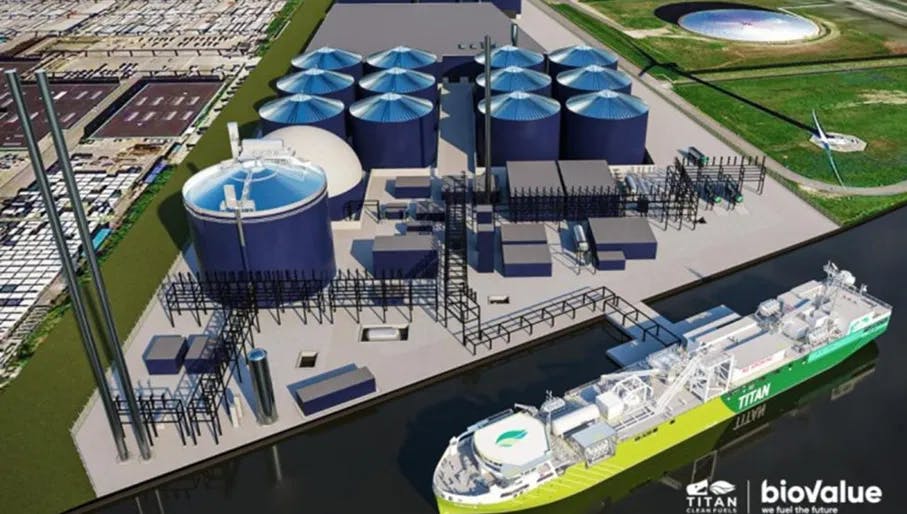World’s largest biomethane liquefaction plant to be built in the Port of Amsterdam
Reducing 1 million tonnes of CO2 emissions
Titan, an independent supplier of low and zero-carbon fuels, announced plans to build the world’s largest LBM production plant, set to be completed by 2025. This project aims to produce 200,000 tonnes of LBM per year, providing the local supply chain with a nearly carbon-neutral alternative to fossil fuel.
Based in the Port of Amsterdam, this strategic location allows Titan to supply this biofuel to vessels, truck refilling stations, and industrial customers. The projected amount of LBM will cut fossil fuel usage, saving an estimated 1 million tonnes of CO2 emissions per year – the equivalent to about 25% of all diesel cars in the Netherlands.

Leading the clean energy transition from the heart of Amsterdam
Producing LBM in the most sustainable way is key when it comes to the plant’s operation and design. Biogas will only be sourced from sustainable feedstocks that comply with the latest EU directives and regulations. The majority of the supply will come from BioValue, one of the largest biogas suppliers in the Netherlands, from their adjacent plant in the Port of Amsterdam. Other sustainable integrations in the plant include the capturing and utilisation of the biogenic CO2 side stream, and the hydrogen-ready design.
According to Roon van Maanen, Director Energy & Circular Industry at Port of Amsterdam, “Having the energy transition, circular economy and clean shipping at the core of our sustainability strategy, Port of Amsterdam welcomes the novel renewable fuel plant with full support. We want to reduce emissions in our port area and lead the way in the transition to a sustainable society. This plant, with its hydrogen-ready design, is a perfect example that fits seamlessly with our long-term strategy for the port.”
The project aligns with the latest European climate laws including the RePowerEU plans and Fit-For-55 package by helping to transition the logistics industry to renewable sources of energy. It also underscores the Port’s investment in developing a green energy supply chain and accompanies their pledge to be coal-free by 2030.